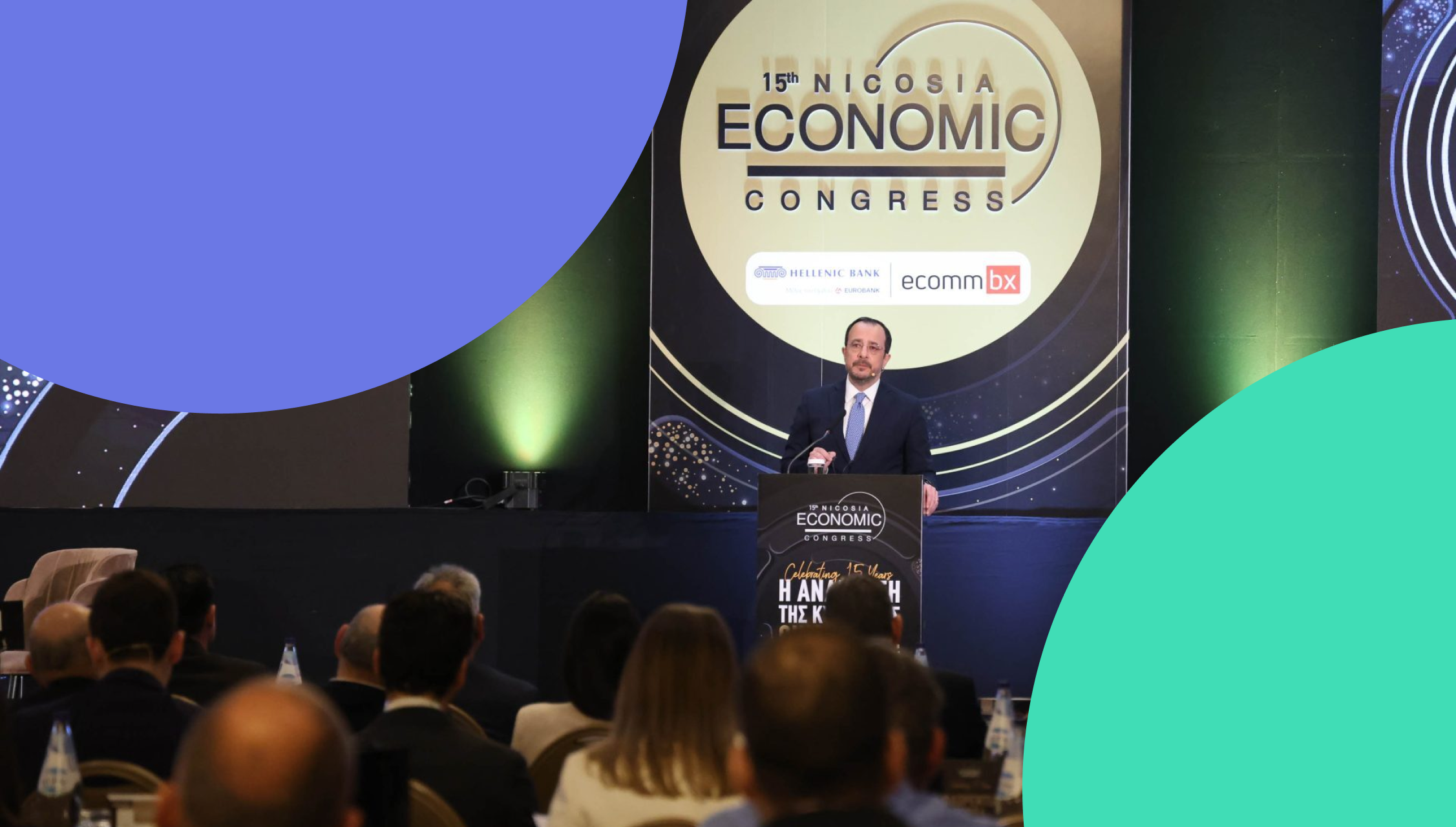Insights from the 15th Nicosia Economic Congress
In April Cyprus hosted the 15th Nicosia Economic Congress – a major regional forum focused on long-term growth strategies, institutional reform, and regional competitiveness. The event brought together senior officials, policy advisors, and private-sector leaders to examine Cyprus’s future role across Europe and the broader region.
President of the Republic of Cyprus, Mr Nikos Christodoulides, during his speech at the Congress, outlined key national goals around digital transformation, energy transition, and talent retention. He highlighted Cyprus’s plans to collaborate with global technology leaders and introduced the “Brain Gain” initiative aimed at reversing workforce outflow.
This year’s agenda reflected a wide set of priorities, structured around key themes:
Energy transition
Government representatives outlined a three-pillar energy policy focused on security, affordability, and green transformation. The private sector underscored the importance of energy cost reduction to support business growth and competitiveness.

Sustainable finance
Discussions highlighted the growing importance of ESG criteria, with emphasis on adapting financing tools and policy frameworks to meet both environmental goals and market needs.
Digital governance
Institutional transformation was positioned as a national priority. Topics included the need to digitise public services, streamline internal processes, and modernise administrative capabilities.
Tax policy and competitiveness
Cyprus’s standing as a business and investment hub was examined in the context of global tax shifts. Stakeholders discussed how fiscal policy could remain competitive while aligning with international standards.
Labour and skills
Workforce modernisation and skills development were addressed as critical factors in long-term resilience. Participants explored how public and private institutions can better align training and employment frameworks.
Youth leadership and next-generation business
Several sessions focused on how Millennials and Gen Z are shaping new expectations around transparency, innovation, and policy responsiveness – with generational dialogue seen as a factor in long-term policymaking.
Geopolitical positioning
Cyprus’s proximity to three continents was discussed as both a challenge and an opportunity. Sessions addressed how regional complexity informs investment, security cooperation, and foreign policy direction.
For OpiniQ, forums like this offer valuable insight into how national priorities evolve – and how advisory models should adapt in response. Observing institutional dialogue at this level helps refine internal strategy and align with the future-facing concerns of the region’s leadership and enterprise community.
Image credit: Press and Information Office, Republic of Cyprus – www.gov.cy